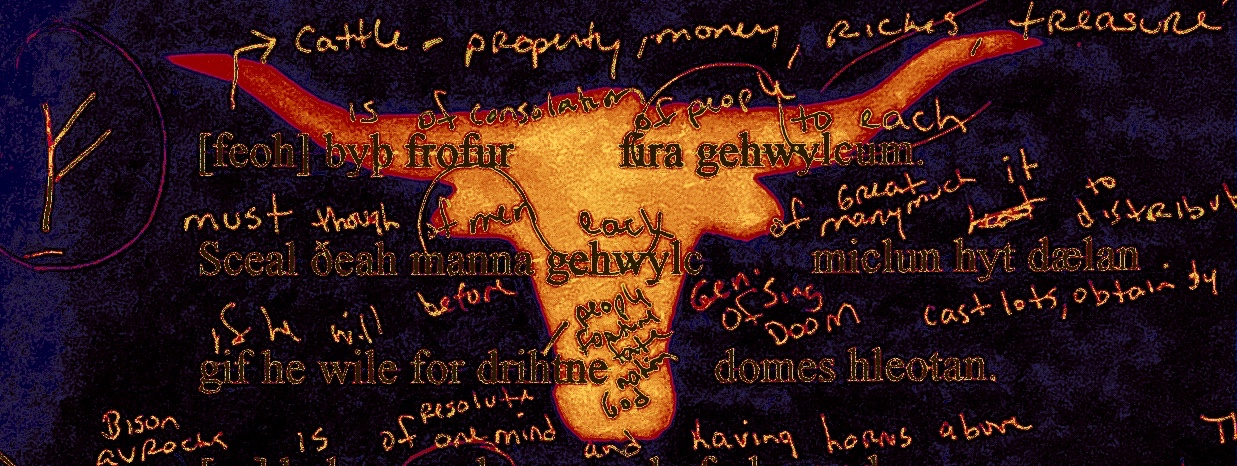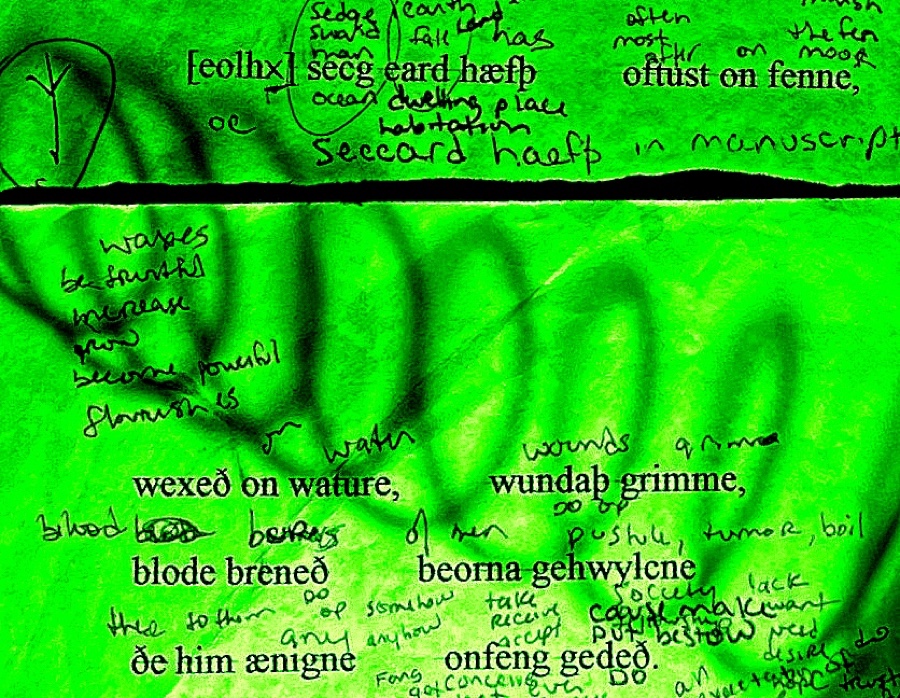 This is a stanza about a plant; this is clear from the context and from the word secg, which means a sedge or reed. It also means a person, poetically, and a sword. In Beowulf it is a sword: ac wit on niht sculon secge ofersittan, gif he gesecean dear wig ofer wæpen (but we two are obliged to abstain from the sword in the night, if he dare seek battle without a weapon.) I translate secg as sword to enhance the riddling nature of the stanza. Of all the plants, a sharp sedge is the most sword like. It’s got edges like razors and will cut you just like that. This one in particular will give you grim wounds, with burning bloody blisters. Stay away, don’t grab hold of it. Like the thorn, this plant wants you to bleed.
This is a stanza about a plant; this is clear from the context and from the word secg, which means a sedge or reed. It also means a person, poetically, and a sword. In Beowulf it is a sword: ac wit on niht sculon secge ofersittan, gif he gesecean dear wig ofer wæpen (but we two are obliged to abstain from the sword in the night, if he dare seek battle without a weapon.) I translate secg as sword to enhance the riddling nature of the stanza. Of all the plants, a sharp sedge is the most sword like. It’s got edges like razors and will cut you just like that. This one in particular will give you grim wounds, with burning bloody blisters. Stay away, don’t grab hold of it. Like the thorn, this plant wants you to bleed.
This sedge lives in the fen. The stanza says fenne,… More

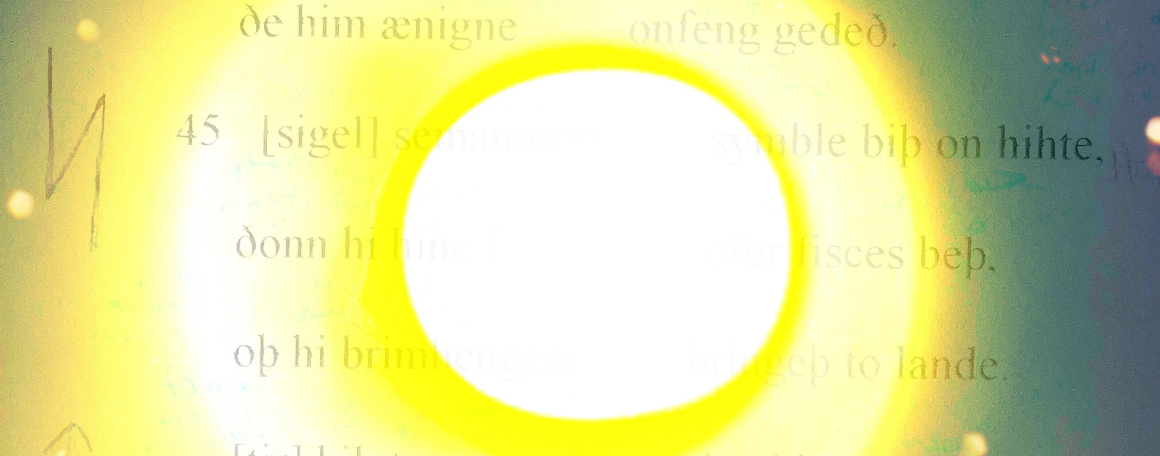 The answer to this riddle is
The answer to this riddle is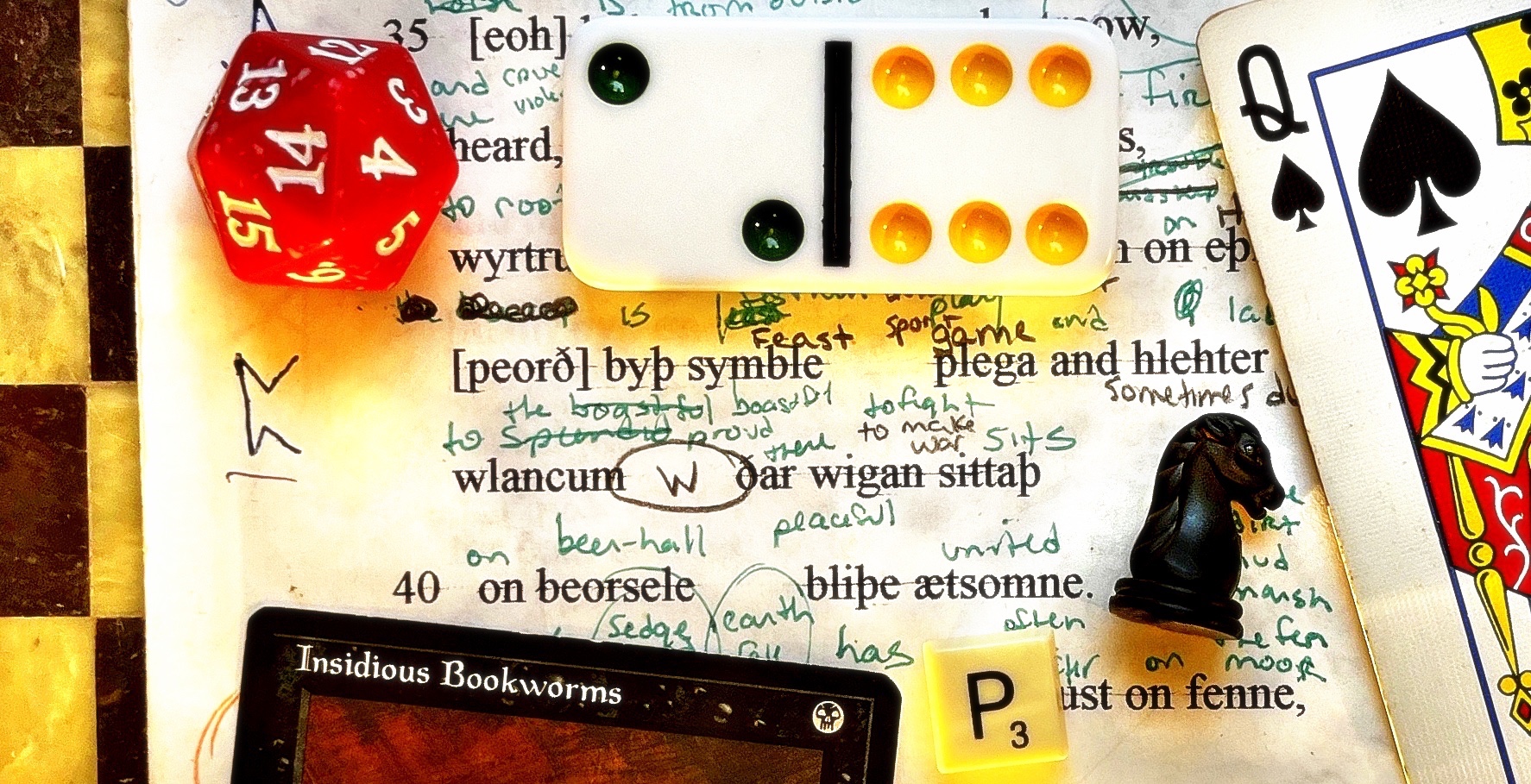 Nobody knows what this is for certain. The only time we ever see the word peorð in Old English is in lists of rune names, so we only know what the Rune Poem riddle says, that
Nobody knows what this is for certain. The only time we ever see the word peorð in Old English is in lists of rune names, so we only know what the Rune Poem riddle says, that 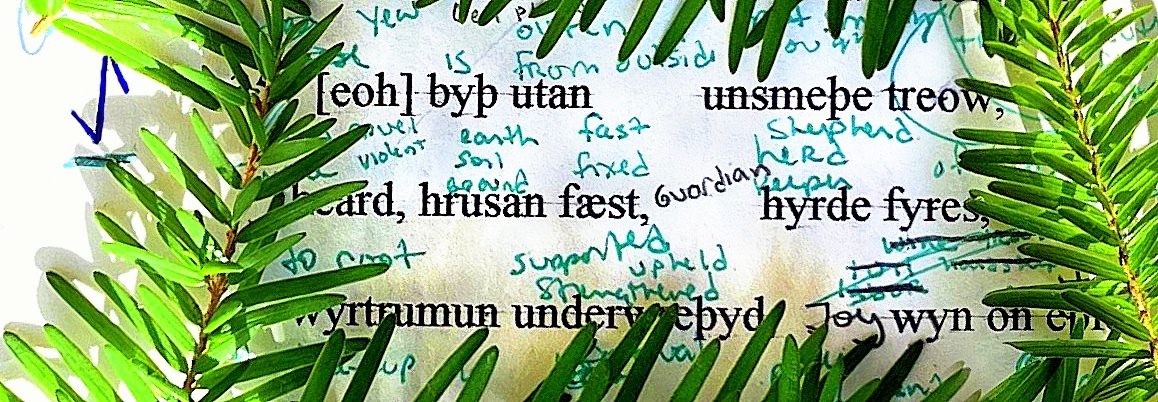 A tree does not show up in the Rune Poem unless it is important. You think they’ll let just any tree grow in these sacred woods? No. These are the god trees. Useful too.
A tree does not show up in the Rune Poem unless it is important. You think they’ll let just any tree grow in these sacred woods? No. These are the god trees. Useful too. 






































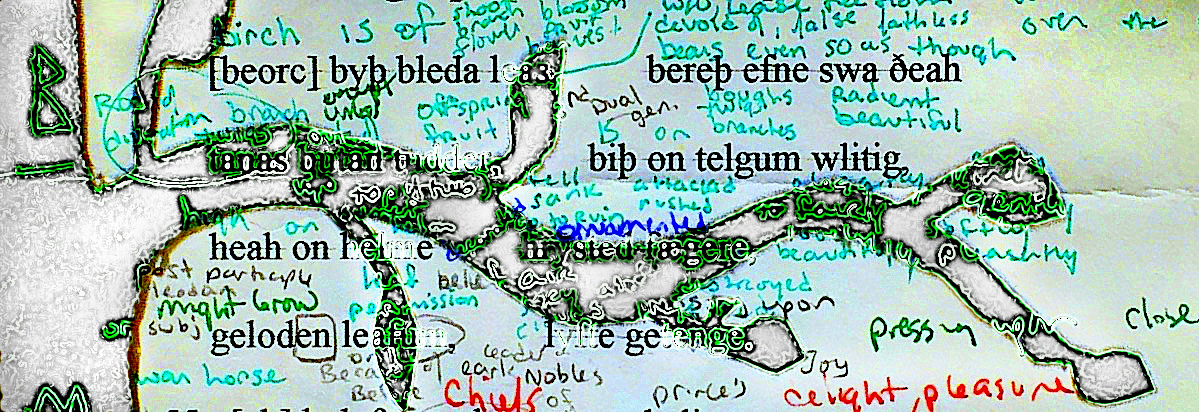 This stanza’s riddle is about a tree. There lives
This stanza’s riddle is about a tree. There lives 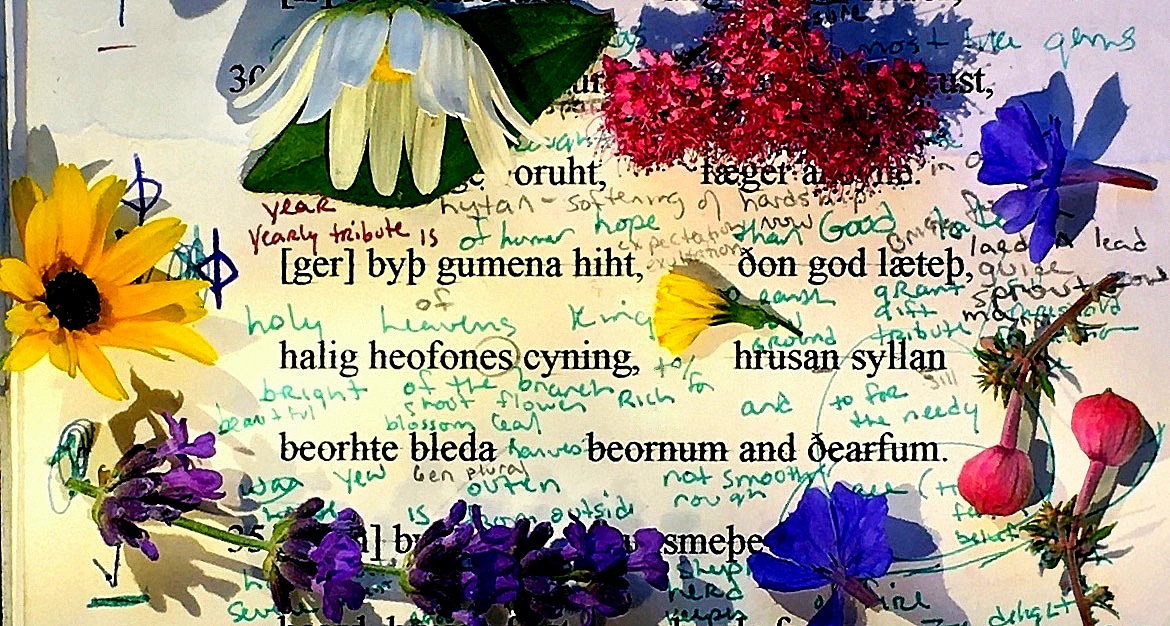
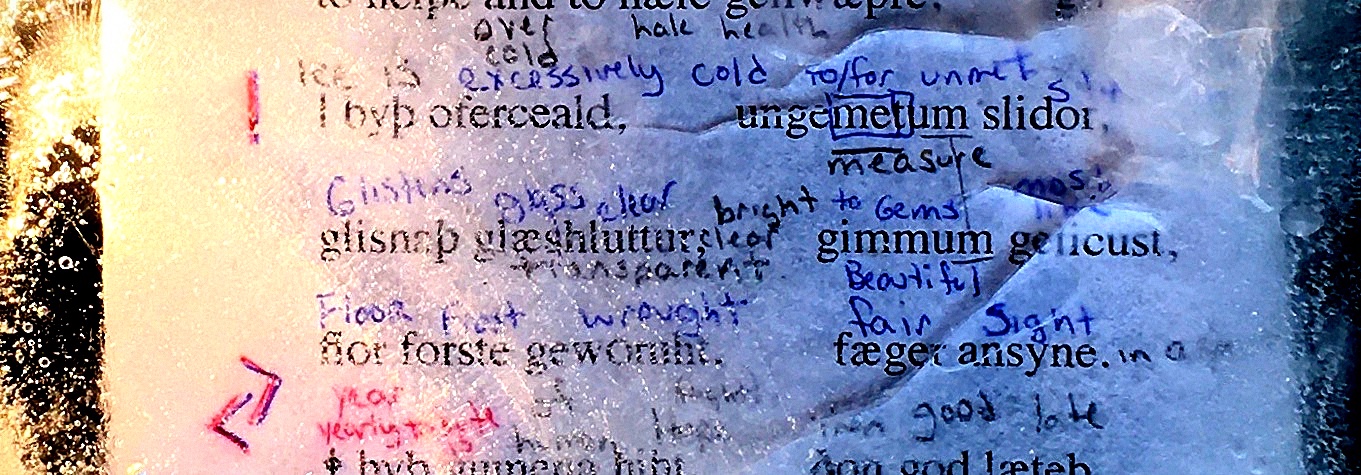
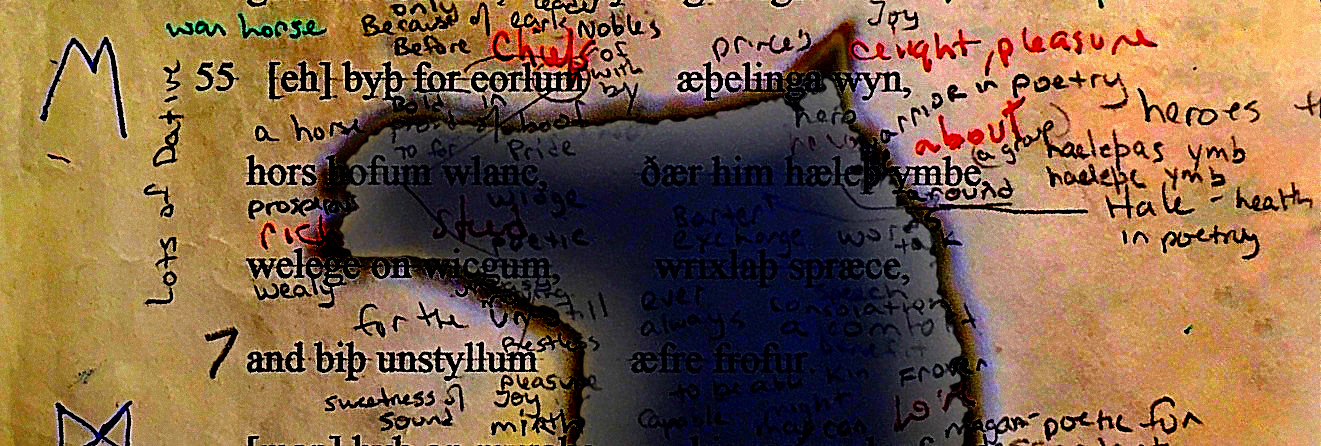 There’s lots of words for horse in Old English, hors, for one. But there’s wicg, hengest, friþhengest, onrid, radhors, mearh, sceam, steda, stott, blanca, gelew, all words that mean specific types of horses by the style, sex, physical appearance, color. This was a horse culture. Horses were a very big deal. Why? They made life easier. Having a horse changes everything. They were useful for pulling stuff, not for ploughing though,
There’s lots of words for horse in Old English, hors, for one. But there’s wicg, hengest, friþhengest, onrid, radhors, mearh, sceam, steda, stott, blanca, gelew, all words that mean specific types of horses by the style, sex, physical appearance, color. This was a horse culture. Horses were a very big deal. Why? They made life easier. Having a horse changes everything. They were useful for pulling stuff, not for ploughing though, 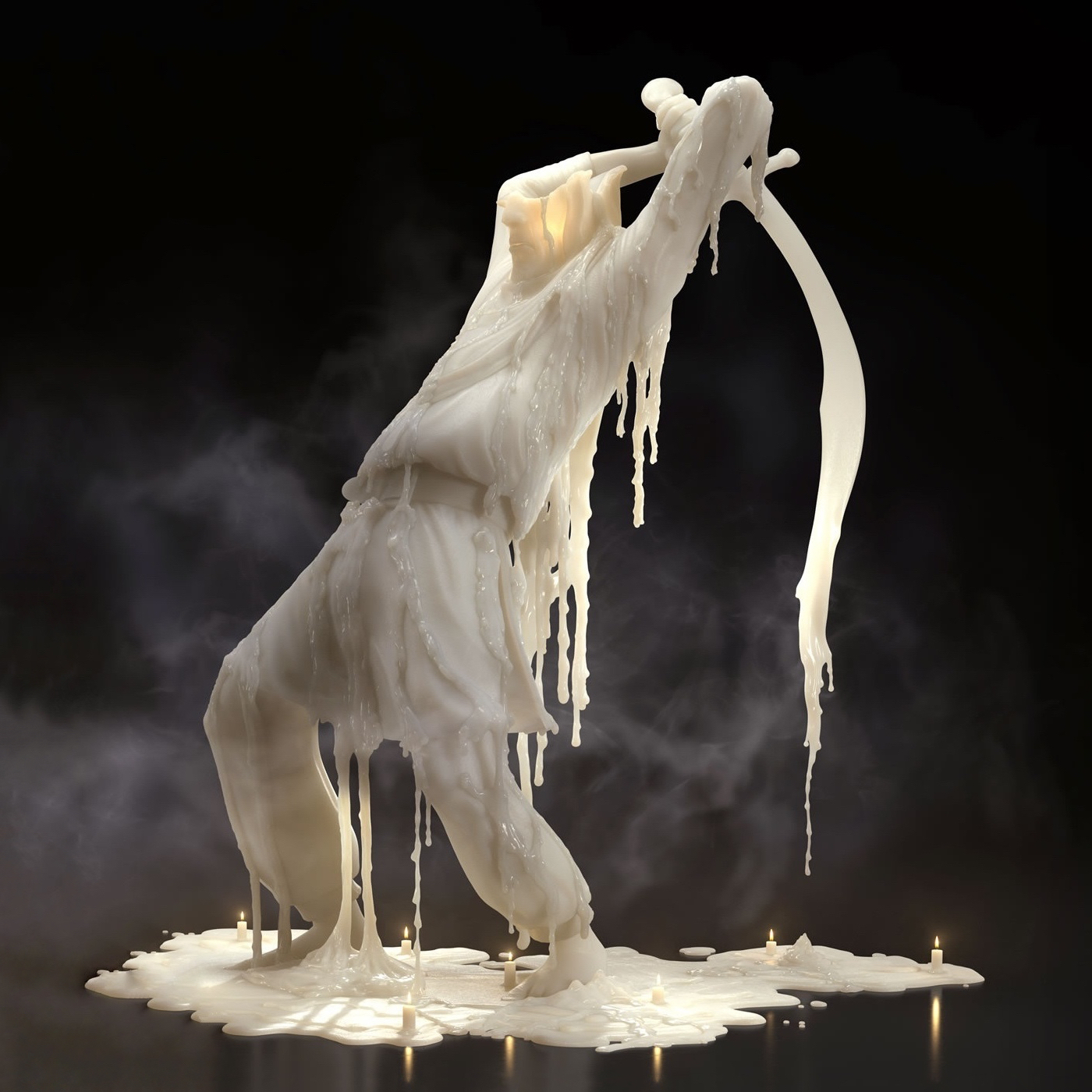 H: At the start of an Old English word, H is almost silent,
H: At the start of an Old English word, H is almost silent,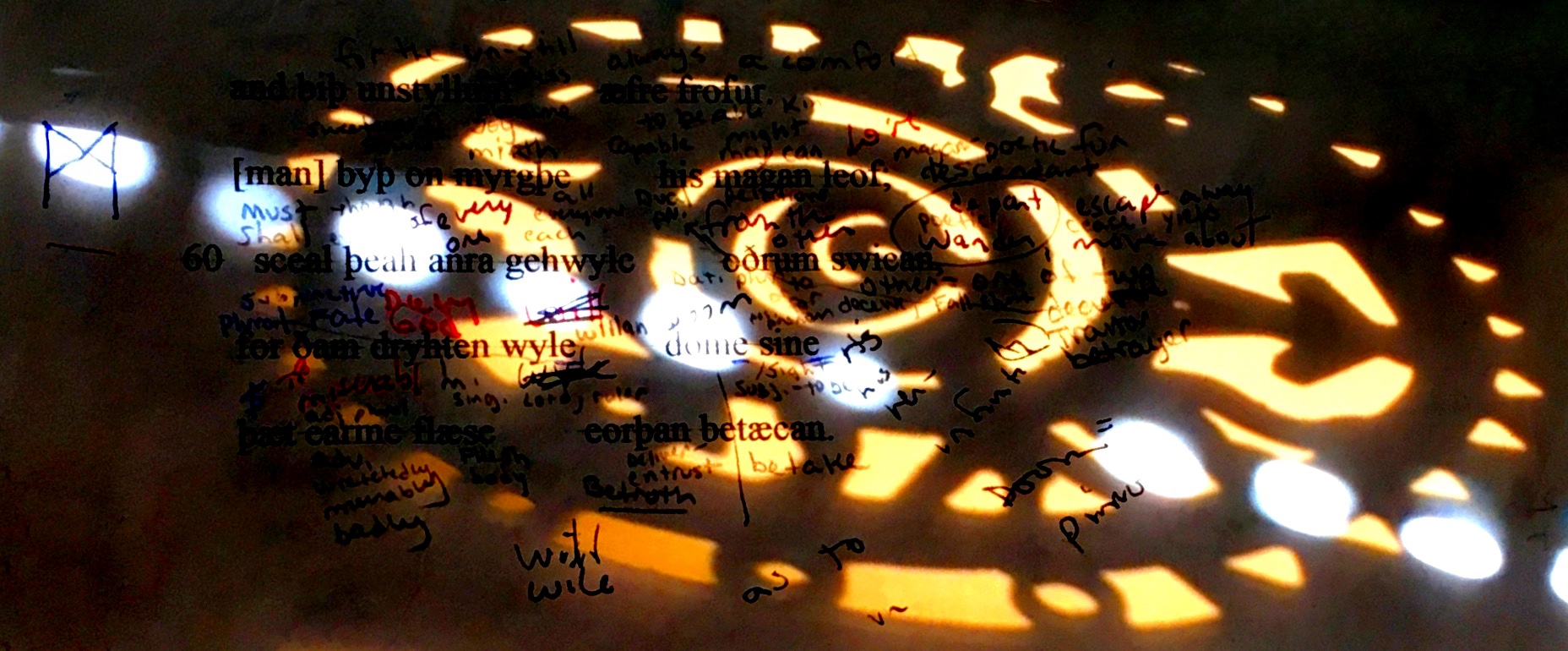 In Old English, a mann is a human being of any gender, translated into modern English as anyone, they, people, a citizen, a human. Mann is not a male person here, so when you see Mann as the name of this rune, it does not mean man as in male. Most correctly it can be either Person or Human but I need to pick one: Human. Person says more about ourselves as bodies. We carry things on our person, we are a person in a room. We are also a human in a room, but we do have a collective human nature, a human understanding, and human sensibilities. Human is a word that suggests the connection we have from our shared experience of being people in the world. It’s a choice that feels right to me as an answer to
In Old English, a mann is a human being of any gender, translated into modern English as anyone, they, people, a citizen, a human. Mann is not a male person here, so when you see Mann as the name of this rune, it does not mean man as in male. Most correctly it can be either Person or Human but I need to pick one: Human. Person says more about ourselves as bodies. We carry things on our person, we are a person in a room. We are also a human in a room, but we do have a collective human nature, a human understanding, and human sensibilities. Human is a word that suggests the connection we have from our shared experience of being people in the world. It’s a choice that feels right to me as an answer to 
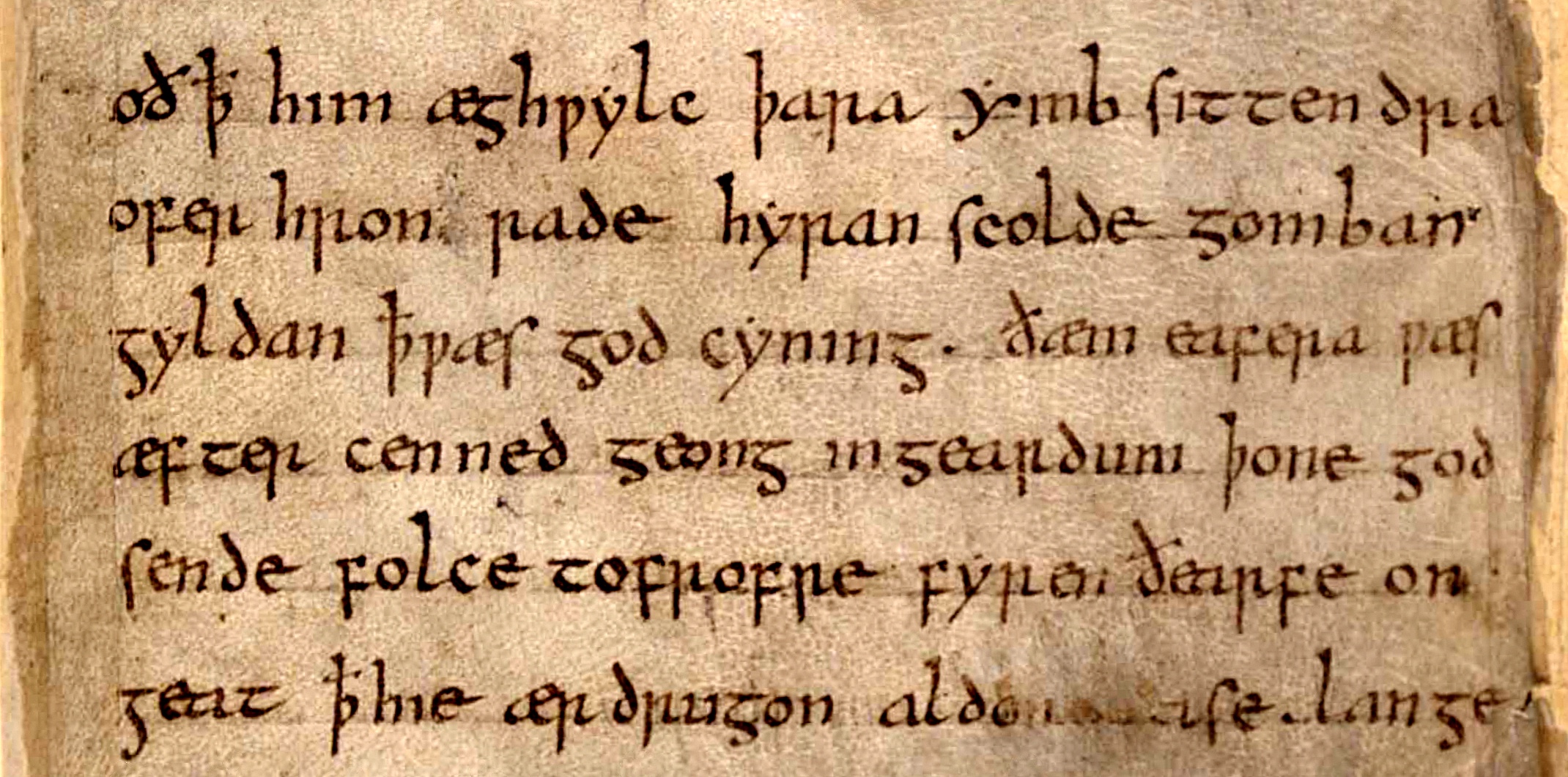 Your hand hurts. Your non-ergonomically correct work station is giving you all kinds of scoliosis. You are low on ink and
Your hand hurts. Your non-ergonomically correct work station is giving you all kinds of scoliosis. You are low on ink and 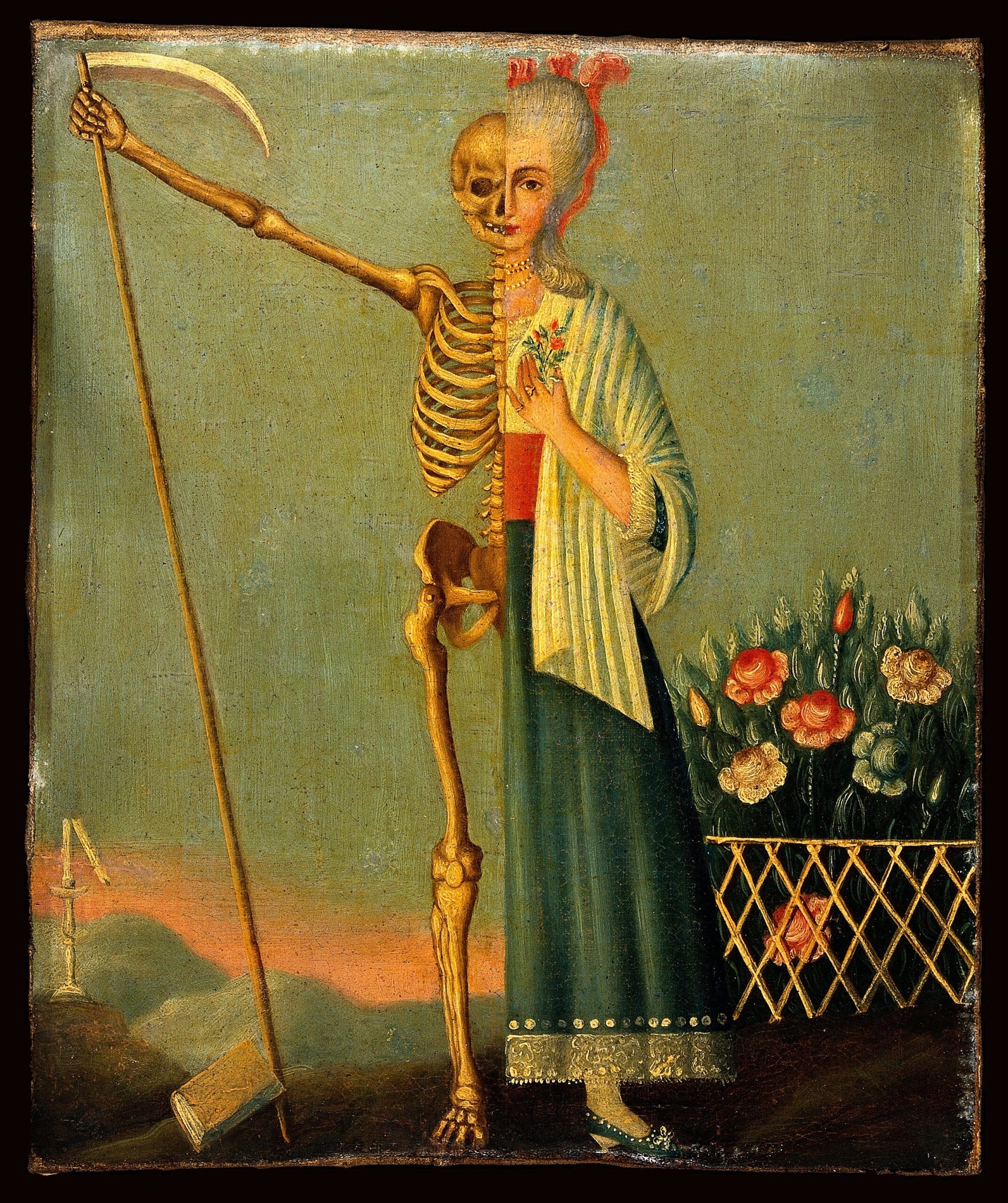 The Rune Poem stanzas
The Rune Poem stanzas  The Rune Poem’s stanzas vary in length. Each of the first eight stanzas consist of three lines containing four beats of stressed syllables: twelve beats total. Then we get an abrupt shift toward brevity with a pair side by side,
The Rune Poem’s stanzas vary in length. Each of the first eight stanzas consist of three lines containing four beats of stressed syllables: twelve beats total. Then we get an abrupt shift toward brevity with a pair side by side, 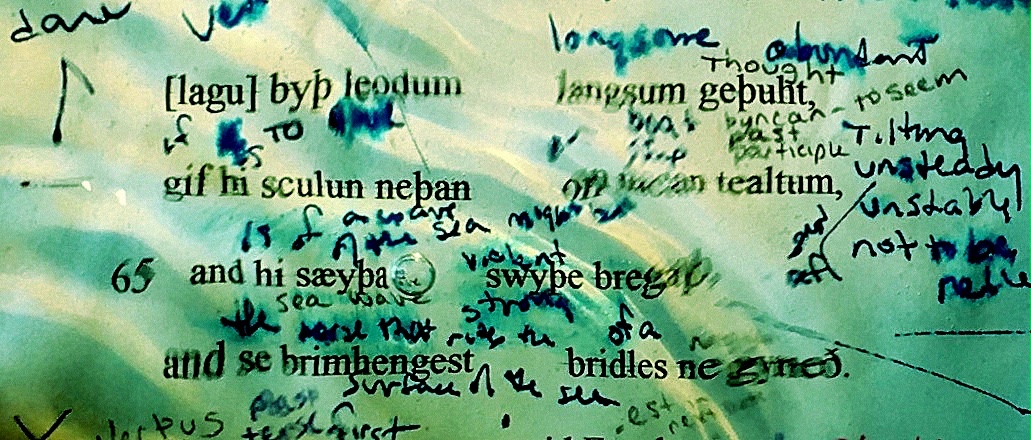 Waterways were busy places during the time of the Rune Poem, making for convenient connections between coastal settlements and with ports of trade farther afield. However, things become a lot less easy when
Waterways were busy places during the time of the Rune Poem, making for convenient connections between coastal settlements and with ports of trade farther afield. However, things become a lot less easy when 
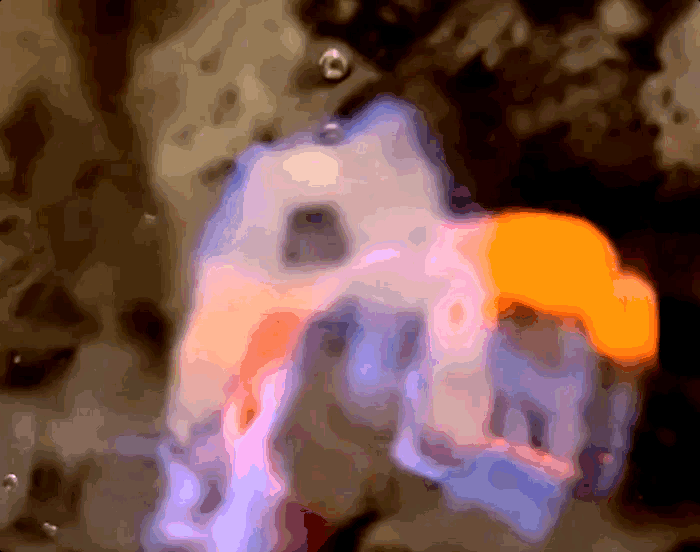
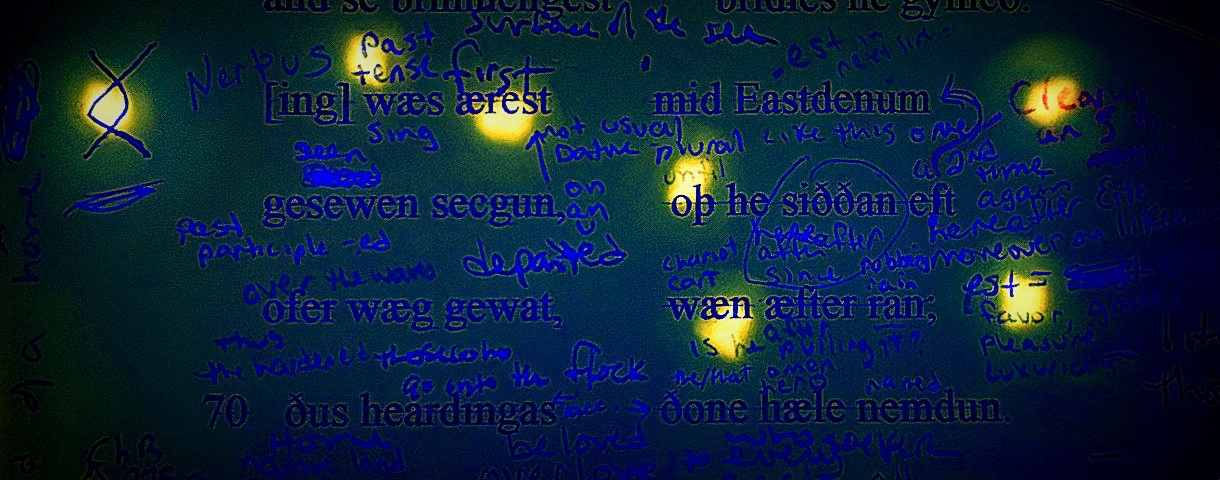 Ing is a mystery. Who is Ing? Where did he go? Why did he leave? We don’t know. You know who knows?
Ing is a mystery. Who is Ing? Where did he go? Why did he leave? We don’t know. You know who knows? 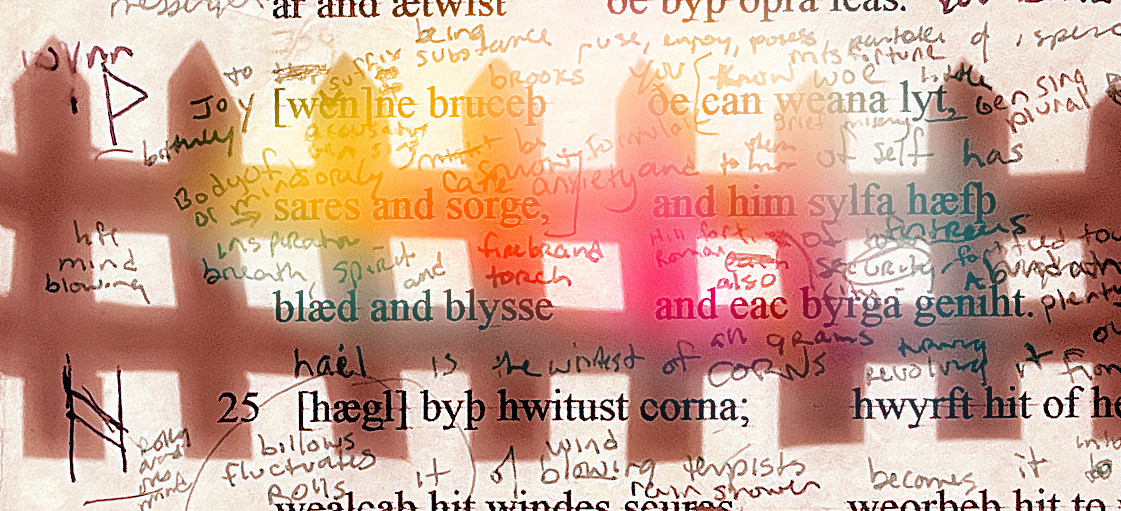
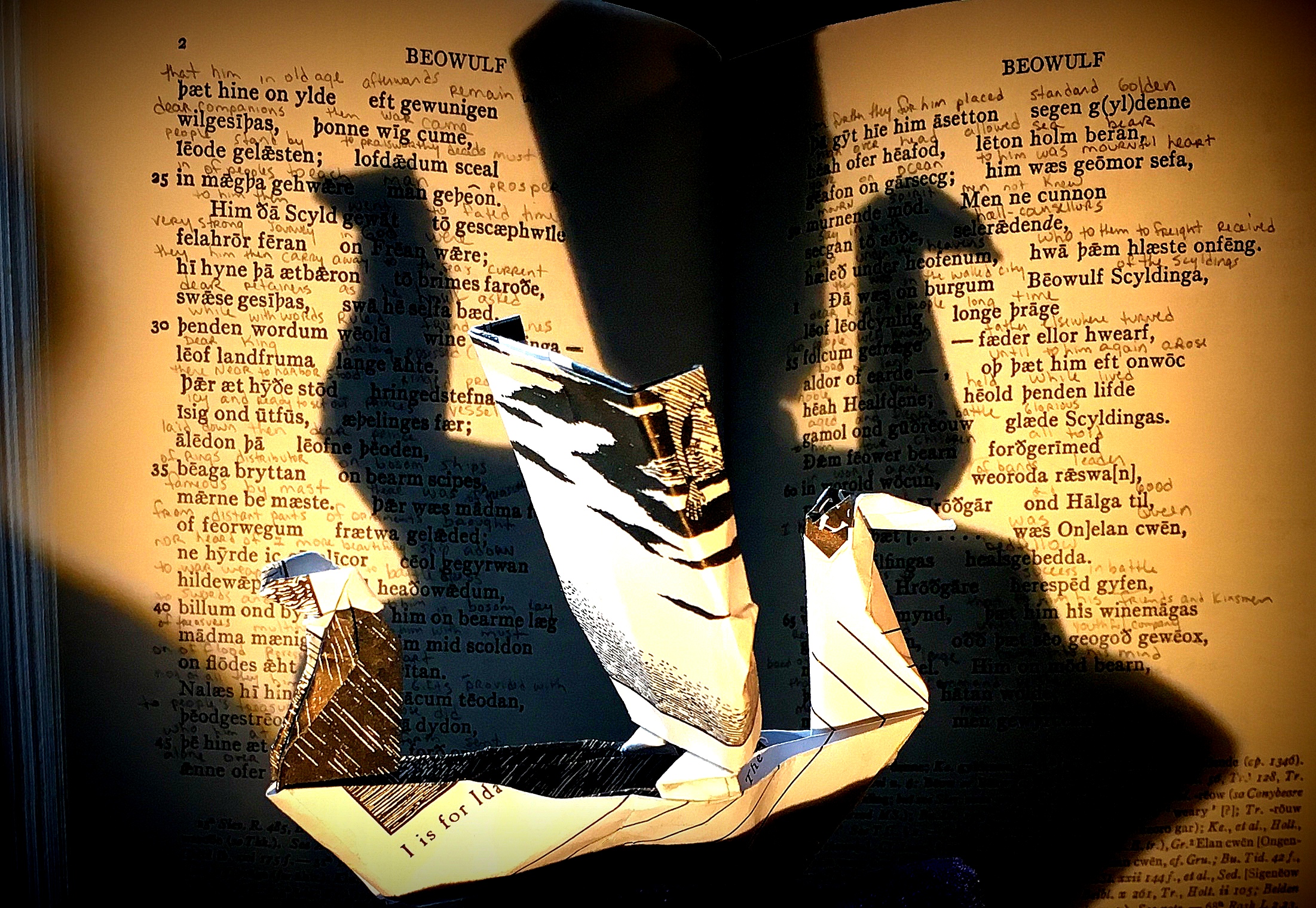 To them then Scyld went, at the fated time, on a journey full of exploits, to God. Then they carried him away to the surf on the shore, his beloved companions, as he himself asked, while he ruled with words, friend of the Scyldings. The beloved first of his land long had possession. There near to harbor stood a ringed prow, icy and ready to set out, a prince’s vessel. Then laid down the beloved chief, the giver of rings, on the ship’s bosom famous by its mast. Of treasure there was much, ornaments brought from distant parts. I had not heard of a ship more beautifully adorned with war weapons and battle dress, with blades and armor. For him, on his body lay a multitude of treasures, that with him must into the flood’s possession, far depart. They provided him with no lesser gifts than the people’s treasures, then those did, who at his …
To them then Scyld went, at the fated time, on a journey full of exploits, to God. Then they carried him away to the surf on the shore, his beloved companions, as he himself asked, while he ruled with words, friend of the Scyldings. The beloved first of his land long had possession. There near to harbor stood a ringed prow, icy and ready to set out, a prince’s vessel. Then laid down the beloved chief, the giver of rings, on the ship’s bosom famous by its mast. Of treasure there was much, ornaments brought from distant parts. I had not heard of a ship more beautifully adorned with war weapons and battle dress, with blades and armor. For him, on his body lay a multitude of treasures, that with him must into the flood’s possession, far depart. They provided him with no lesser gifts than the people’s treasures, then those did, who at his … 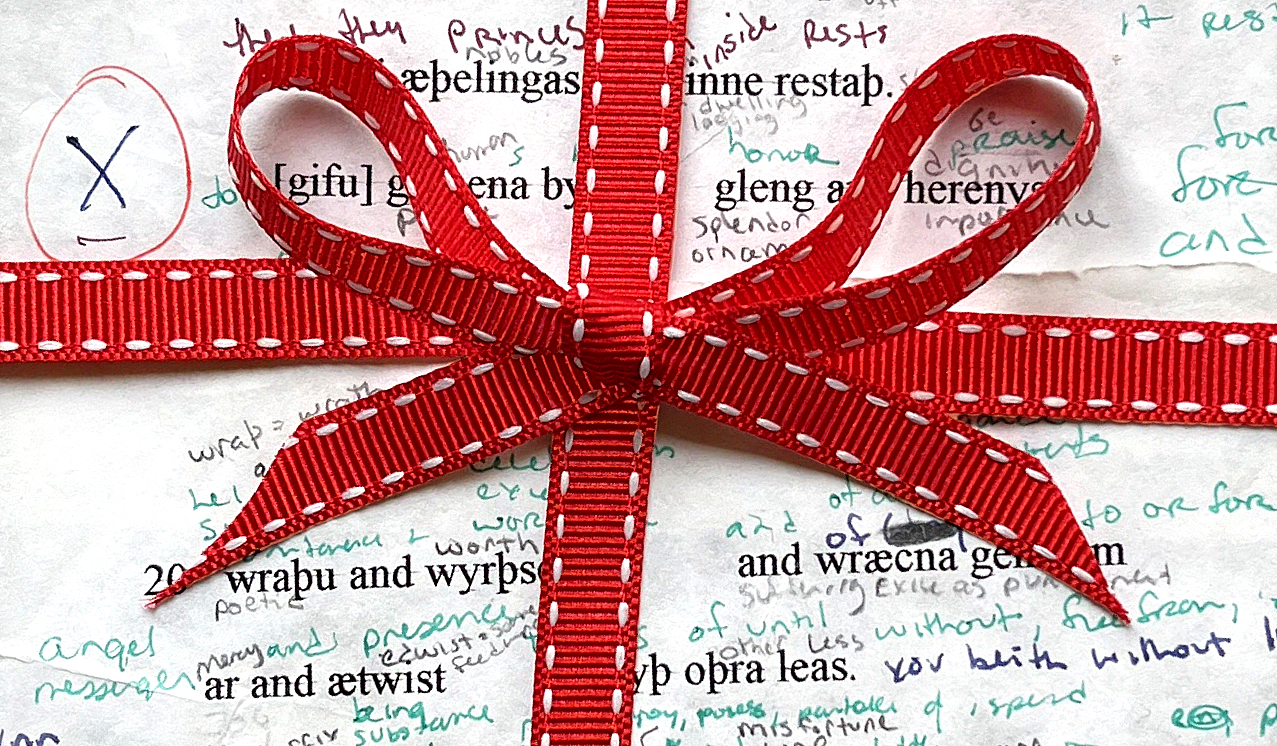 Gift giving was a big deal to the people of the Rune Poem. It was everything. They gave everything. It could be food or goods, but they loved ornament and anything old especially: gilded, edged with silver, blinding shiny, these were the best gifts, but it wasn’t about the bling so much as the message. What you give is what you’re worth and what you will be remembered for. Everybody wants to be worth something and everybody wants to be remembered, it’s the only permanent thing in a world
Gift giving was a big deal to the people of the Rune Poem. It was everything. They gave everything. It could be food or goods, but they loved ornament and anything old especially: gilded, edged with silver, blinding shiny, these were the best gifts, but it wasn’t about the bling so much as the message. What you give is what you’re worth and what you will be remembered for. Everybody wants to be worth something and everybody wants to be remembered, it’s the only permanent thing in a world 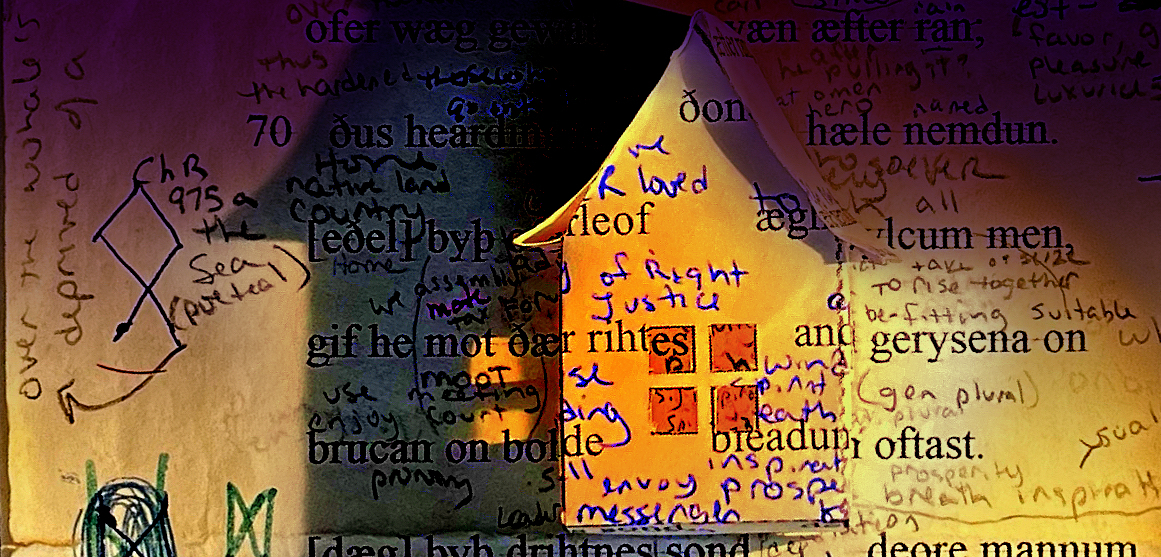 The Rune Poem is sung in a tempo that changes from time to time. You can find the beats and the rests between them in the stresses of the words in each stanza. Some move quickly like the adjacent
The Rune Poem is sung in a tempo that changes from time to time. You can find the beats and the rests between them in the stresses of the words in each stanza. Some move quickly like the adjacent 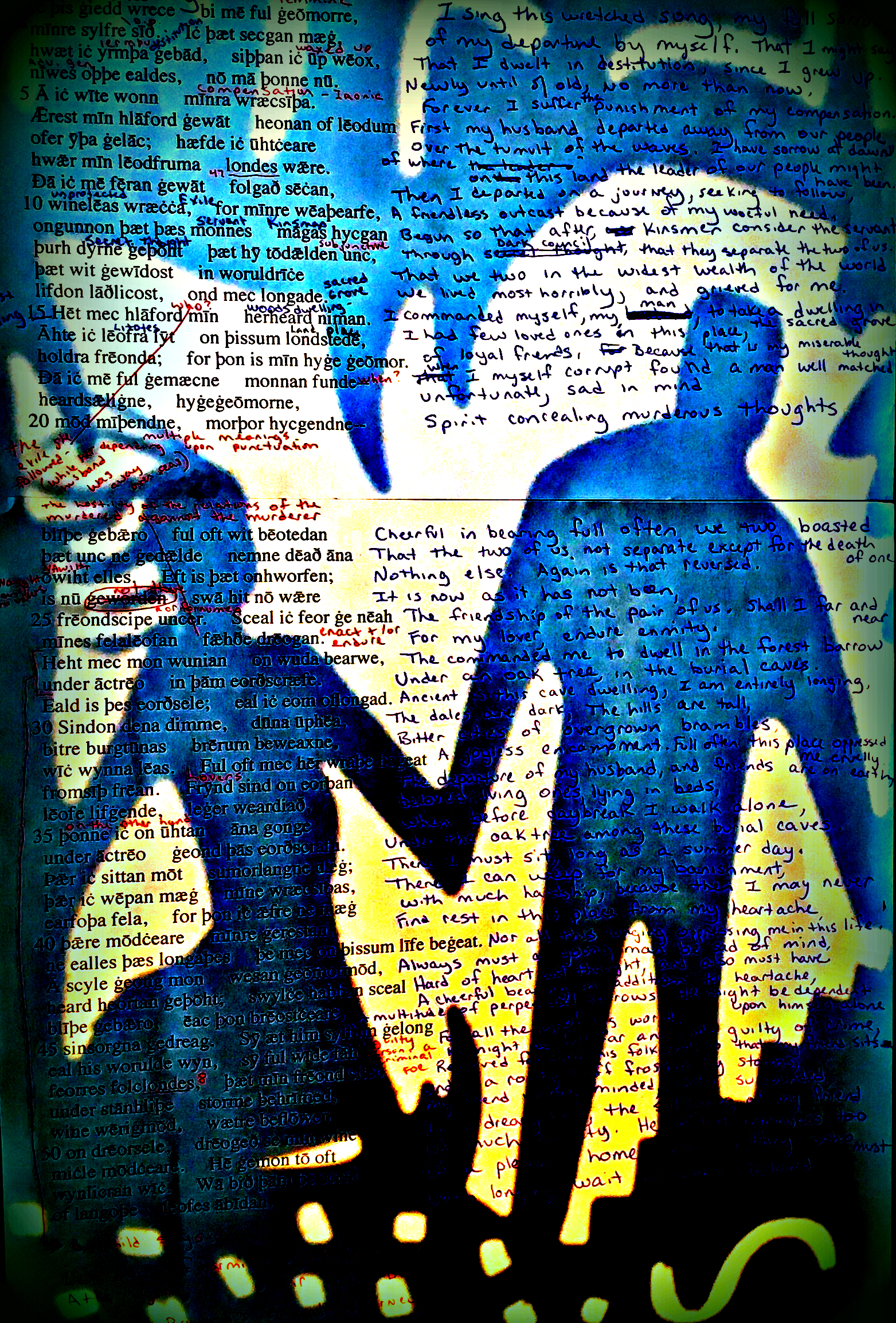 I sing this wretched song, my full sorrow
I sing this wretched song, my full sorrow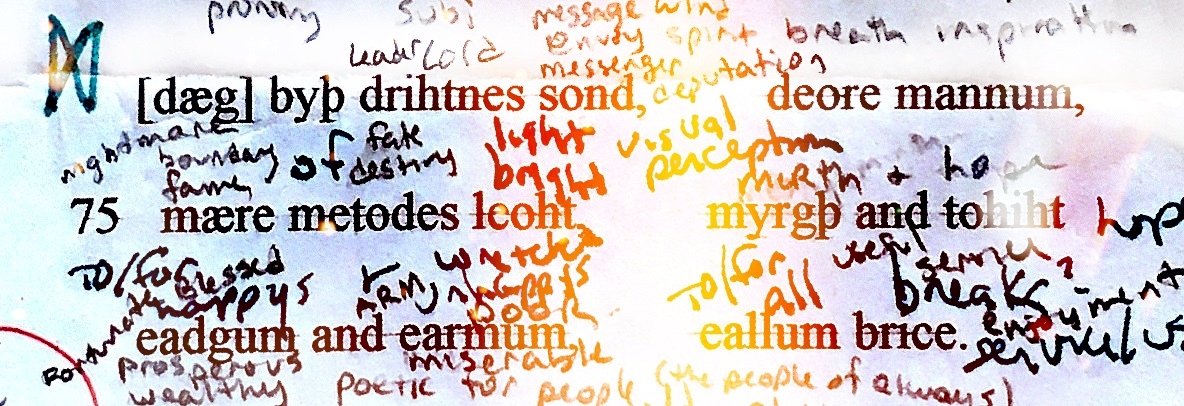 The word drihtnes appears twice in the rune poem,
The word drihtnes appears twice in the rune poem, 

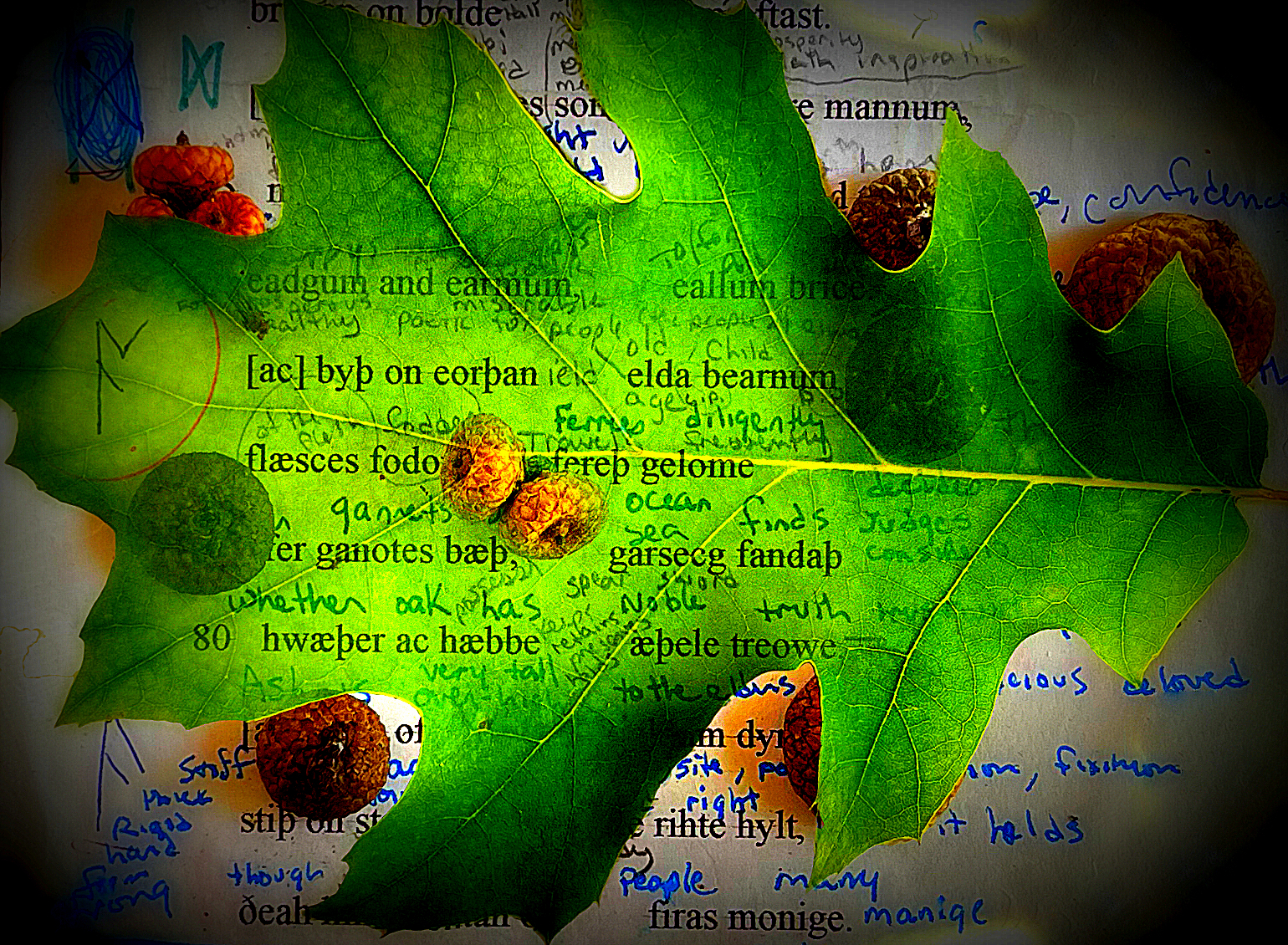

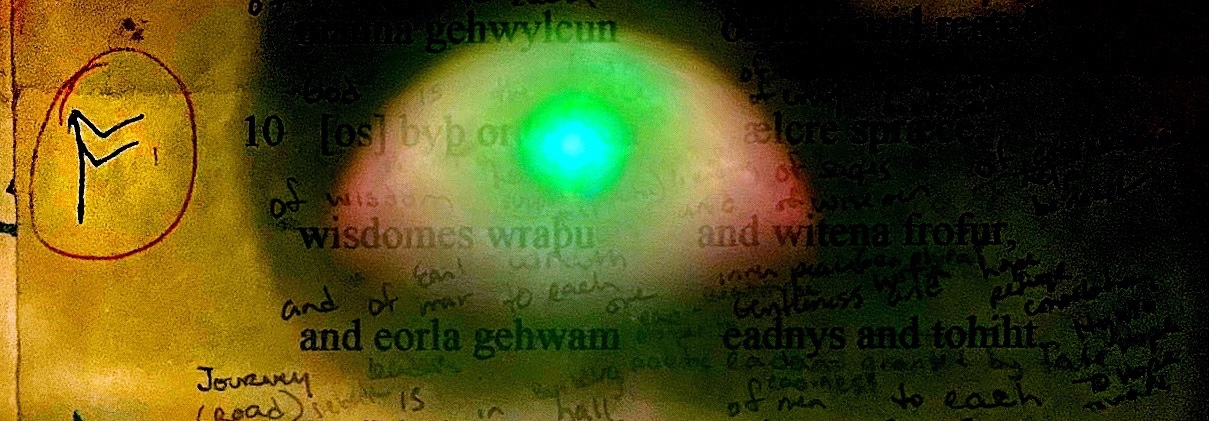 Os means God, non specified, though this stanza might be talking about a specific one. There are other specific gods in the Rune Poem.
Os means God, non specified, though this stanza might be talking about a specific one. There are other specific gods in the Rune Poem. 
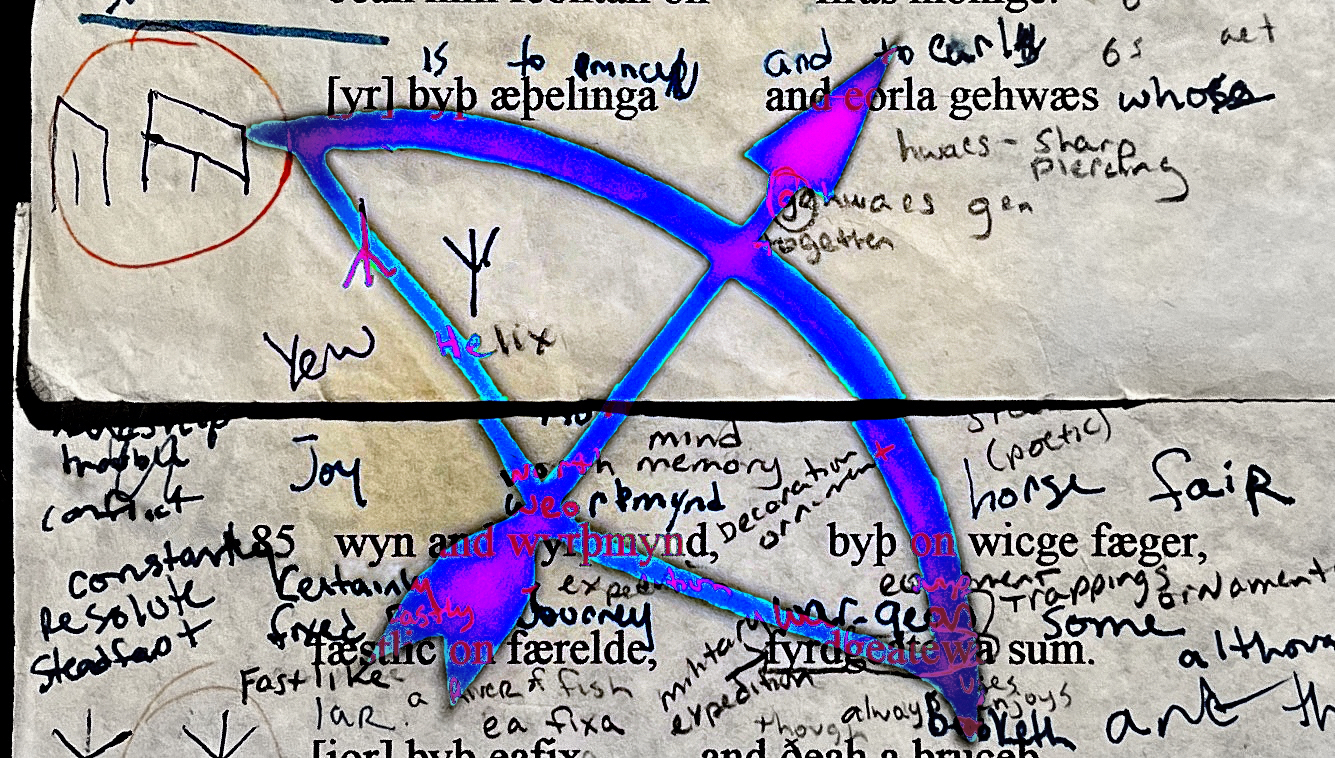
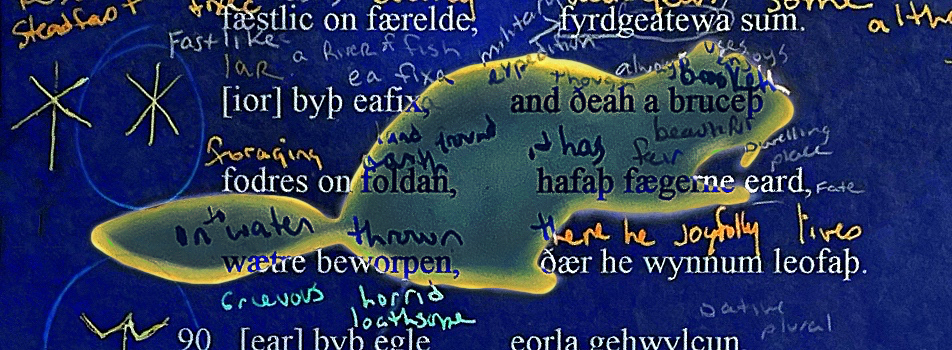
 Ur, the aurochs, is a wild bovine, like a cow but not a normal cow. Dangerous. Think of the fiercest cows you know: the toro bravo they use for bull fighting, or the Jersey dairy bull which is particularly unpleasant. Gather them together,
Ur, the aurochs, is a wild bovine, like a cow but not a normal cow. Dangerous. Think of the fiercest cows you know: the toro bravo they use for bull fighting, or the Jersey dairy bull which is particularly unpleasant. Gather them together, 